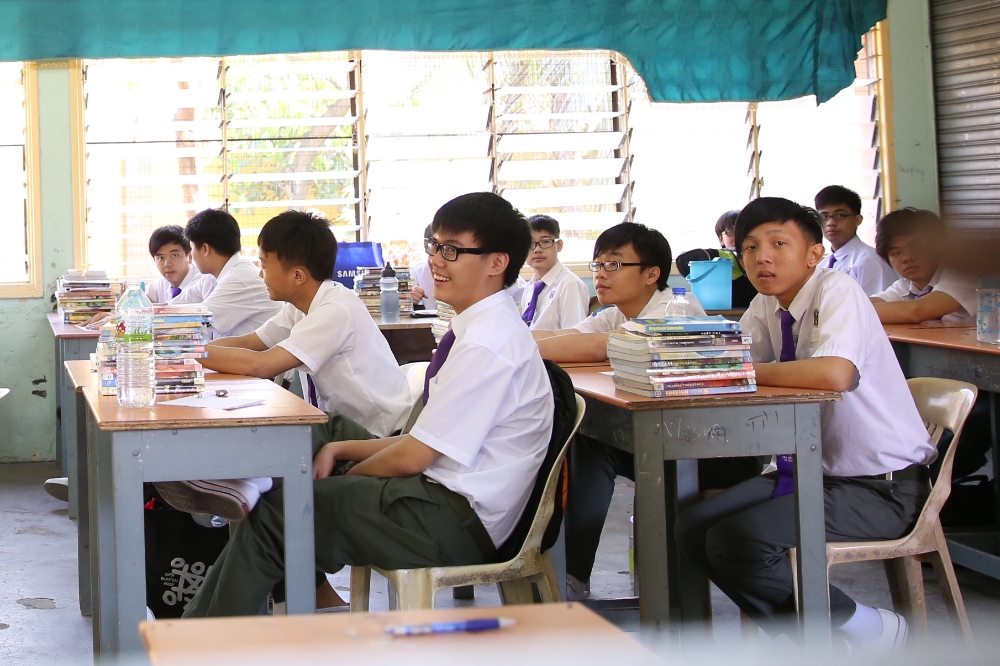KUALA LUMPUR, Jan 14 — Some parents have started sending their children to private learning centres instead of schools, some of which may be unlicensed, because the former teach international curriculums but are cheaper than private and international schools.
Local daily Sunday Star cited a principal at a centre in Petaling Jaya, quoted only as Wong, as saying that the numbers of such centres are increasing yearly with a growth rate of about 15 per cent in the next five years. An estimated 50 to 100 centres already operational in the Klang Valley.
The report stated such private learning centres are favourable to students and parents instead of schools, as such institutions offered a variable timetable, with some between the hours of 9am to 5pm, international curriculums such as the International General Certificate of Secondary Education (IGCSE) and Cambridge primary education, extra activities ranging from hip hop classes to drama and vocal training, and no uniform but a dress code to adhere to.
It was reported that parents also favoured the institutions as the fees could be 20 to 30 per cent cheaper than full-fledged private or international schools, which could amount to RM100,000 annually.
Sunday Star reported that the learning centres are mostly located in shoplots and commercial areas.
In efforts to minimise the number of private learning centres running with an inappropriate license or no license at all, the Education Ministry advised parents to be cautious of the registration status of such centres to avoid difficulties in the future and warned action may be taken against the institutions.
The English daily reported among some of the moves that would impact students enrolled in such centres included the ministry not endorsing any certificate received from the unregistered institutions.
“This is a compulsory requirement by the Foreign Affairs Ministry for any students to go abroad,” said the ministry to the English daily.
The report said while the ministry does not have the exact figure of how many illegal centres are operational at present, many complaints have been made on such institutions and inspections have been conducted.
“We have noticed an increasing numbers of complaints about these centres,” the daily quoted the ministry, adding that such institutions would be subjected to penalties according to the law.
The ministry said private learning centres are not one of the 18 categories of registered private educational institutions, which include private schools and education centres such as tuition centres, language centres and enrichment centres.
The report said some of the institutions were licensed as a tuition centre but operated like a school.
“We are looking seriously at their existence and the issues involving these centres as it is against the provision of compulsory education set in the Education Act.
“We will be taking appropriate action in accordance to the Act against illegal educational institutions,” the English paper quoted the ministry.
The ministry urged private educational centres to be registered in accordance to the guidelines and terms. Institutions that wish to run international courses such as IGCSE should have themselves registered as an international school.
“We will not approve any educational centres to run international curriculum in other settings,” the ministry said.
As the number of private learning centres continue to grow, the institutions are open to discuss with the ministry to resolve any issues.
Citing an anonymous academic head from a centre in Kuala Lumpur, the educator said their centre welcomes the governance from the ministry as this would help weed out learning centres that were set up by business individuals, who may not necessarily be experienced educators.
She was reported to suggest that separate license category should be given to learning centres that meet the criteria as education providers.
She said some of the larger and more established centres have begun discussion with the ministry and have made suggestions on control measures in terms of setting the teacher-student ratio, minimum teaching qualifications, teaching licences, as well as fire and safety measures.



















